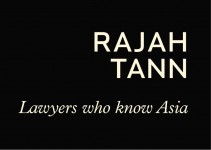Introduction
A gift, once given, cannot ordinarily be reclaimed. However, there are a number of legal bases upon which one can seek the return of gifts in certain circumstances. In the case of Kua Tee Beng v Ye Caiyan [2015] SGHC 53, the Plaintiff sought to recover gifts from his former mistress on the grounds of duress and undue influence, as well as resulting trust.
The Plaintiff had given the Defendant gifts of money, jewellery and a contribution to the purchase of a property. Before the High Court, the Plaintiff submitted that the Defendant had pressured and threatened him into giving the gifts. However, the Court was unable to find any evidence of duress, undue influence or unconscionability.
The Plaintiff also submitted that he was the beneficial owner of his share of the property under a resulting trust. However, the Court found that the Plaintiff had intended to make a gift of financial contribution to the Defendant due to their relationship. Therefore, the Plaintiff failed to reclaim any of the gifts.
Brief Facts
The parties met while they were respectively married and subsequently entered into a romantic and intimate relationship for more than two years. After the relationship ended, the Plaintiff sought the return of certain gifts (the “Gifts”) that he had given to the Defendant during the relationship, which included:
(i) A USD 295k contribution to a Property purchased in the Defendant’s sole name;
(ii) Monthly maintenance for almost two years;
(iii) A Rolex watch worth USD 15k; and
(iv) USD 40k by way of cheque.
The Plaintiff also claimed that he had given the Defendant additional Rolex watches and jewellery, but
she denied having received these gifts (the “Disputed Gifts”).
Holding Of The High Court
The Court rejected the Plaintiff’s application to recover the gifts, finding that he had not proven his case on all grounds.
The Disputed Gifts
As a preliminary finding, the Court held that the Plaintiff had not proven that the Disputed Gifts were in fact given to the Defendant. Besides his own assertions, he could not produce any evidence of the Disputed Gifts, such as details or receipts.
Duress, Undue Influence, Or Unconscionability
The Plaintiff argued that he was subject to duress and undue influence by the Defendant in relation to the Gifts, and that the Defendant had acted unconscionably in inducing him to give the Gifts. The Plaintiff claimed that he was pressured into making the Gifts – specifically, that the Defendant threatened to reveal their relationship to his wife and family and also created a scene at his office pestering him for gifts and support.
However, the Court held that this ground had not been proven mainly because the Plaintiff could not produce any evidence of his bare allegations that he had been thus threatened. On the contrary, the evidence supported the view that the Gifts were made in the context of an intimate relationship which lasted for several years.
The Court also noted that even if the allegations could be proved, the Plaintiff had not made any submissions on whether the Plaintiff’s alleged threats and badgering would amount in law to duress, undue influence, or unconscionability. However, the Court refrained from making any decision on this point.
Resulting Trust
The Plaintiff claimed that the Defendant held the Property on trust for him, either because the Defendant expressly agreed to hold it on such trust for him and signed a Power of Attorney over it, or because his financial contribution to its purchase price created a resulting trust in his favour. The Court rejected both submissions as well.
The Court found that there was no evidence to show that the Defendant expressly agreed to hold the Property on trust for the Plaintiff or that any discussion about such a trust or a Power of Attorney ever took place.
On the alternative basis, the Court held that the Plaintiff’s financial contribution of USD 295k to the purchase of the Property was undisputed. A resulting trust was thus presumed to arise in proportion to his contribution.
However, after examining the evidence, the Court found that the presumption of resulting trust was rebutted by evidence of the Plaintiff’s intention to benefit the Defendant with the entire USD 295k. The parties were in an intimate relationship, and the Plaintiff had willingly gone out of his way to support the Defendant through expensive gifts and substantial monthly maintenance. Hence, the Property belonged entirely to the Defendant.
Concluding Words
This decision highlights the difficulties one might face in legal proceedings to recover gifts. One must be able to prove that the gifts were not willingly made, or that they were not intended to be gifts. This often becomes a matter of evidence. As such, documentary or witness evidence of intention, duress, or unconscionability is vital.
It may also be noted that gifts cannot be reclaimed if the giver merely changes his mind. Thus, if one intends to retain some avenue for recovery, one should make such intention clear at the stage where the gift is given, preferably through documentary terms.
For further information, please contact:
Mohammed Reza, Partner, Rajah & Tann
mohammed.reza@rajahtann.com
Lay Lian Kee, Partner, Rajah & Tann
lay.lian.kee@rajahtann.com






